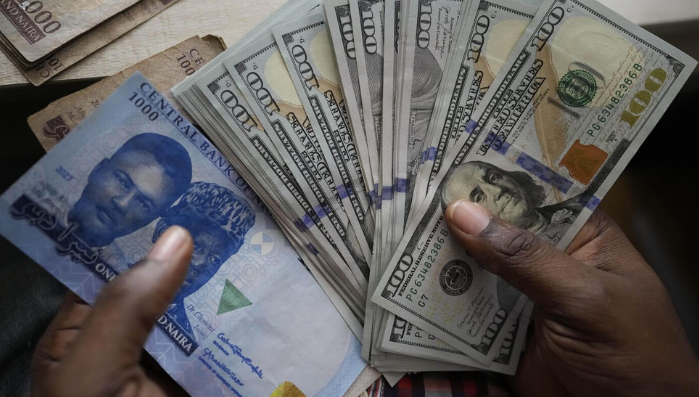Nigeria’s naira is projected to remain stable in the coming weeks, as the Central Bank of Nigeria (CBN) continues to deploy measures aimed at maintaining calm in the foreign exchange market. However, analysts suggest that meaningful appreciation may remain out of reach due to lingering global uncertainty and constrained FX inflows.
As of late last week, the naira traded around N1,610 per US dollar in the parallel market, while official rates recorded a slight appreciation. According to market data, the currency strengthened by 1.1% week-on-week to settle at N1,585/$, buoyed in part by the CBN’s injection of $190.4 million into the official market.
CBN data confirms the naira ended the week on a firmer note, closing at N1,580.44/$ on Friday, compared to N1,584.95/$ on Thursday. The improvement followed the central bank’s decision to maintain monetary policy rates during its latest policy meeting.
In a weekly market commentary, Lagos-based investment firm Cordros Research noted:
“We expect the naira to remain broadly stable in the short term as global pressures ease and trade dynamics improve. However, a significant rebound is unlikely given the ongoing challenges in FX liquidity and low levels of foreign portfolio investment.”
Meanwhile, Nigeria’s foreign exchange reserves rose for a fourth consecutive week, gaining $166.63 million to reach $38.54 billion as of May 21, reflecting the CBN’s strategy of building buffers to defend the currency.

Despite last year’s sharp depreciation where the naira lost over 40% of its value. the recent bout of stability has helped restore some investor confidence. Authorities now tout the currency’s competitiveness as a lever for driving export-led growth.
Speaking at the conclusion of the CBN’s 300th Monetary Policy Committee (MPC) meeting, Governor Olayemi Cardoso emphasized the Bank’s commitment to reforms aimed at maintaining exchange rate stability and curbing inflation.
“We now have a more competitive currency that can support export diversification,” Cardoso stated. “The CBN remains committed to ensuring price stability while safeguarding the naira from external shocks.”
Analysts remain cautiously optimistic that with continued support from the central bank, the naira will avoid major swings in the near term, though longer-term gains will hinge on sustained economic reforms and improved global investor sentiment.



